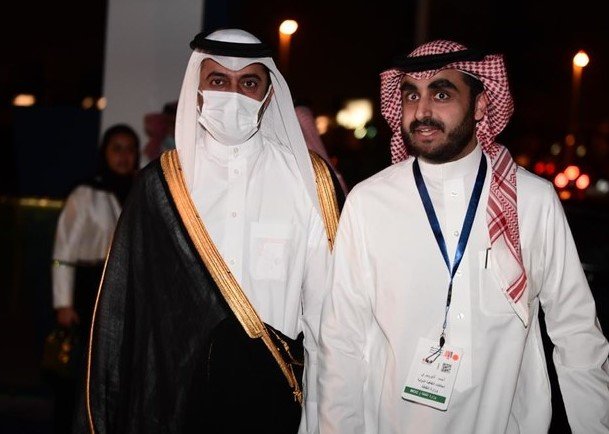Riyadh’s Cultural Ambitions Shine Bright in Beijing as Literary Diplomacy Deepens Saudi-Chinese Ties
Saudi Arabia’s presence at the Beijing International Book Fair 2025 was more than just a booth. It was a statement—a soft-spoken yet confident assertion of the Kingdom’s transformation and outreach, page by page.
Over five bustling days, inside the sprawling halls of the China National Convention Center, curious Chinese readers, literary professionals, and government officials brushed shoulders with Saudi authors, translators, and cultural figures. The Saudi pavilion, run by the Literature, Publishing & Translation Commission, buzzed with activity. Visitors sipped Arabic coffee, flipped through gorgeously bound books, and left with more than souvenirs—they left with stories.
Literature Meets Diplomacy: A Pavilion with Purpose
From the outset, Saudi Arabia’s participation felt deeply symbolic. This wasn’t just about books. It was part of the Saudi-Chinese Cultural Year 2025, a diplomatic effort wrapped in poetry and prose.
The pavilion itself was hard to miss. Dressed in warm desert tones and adorned with intricate Arabic calligraphy, it stood as a microcosm of the Kingdom’s artistic revival. Dozens of titles lined the shelves—novels, children’s books, historical texts, and poetry anthologies—all translated, many bilingual.
One woman, a university student from Shanghai flipping through an Arabic-Chinese bilingual volume, told an interpreter, “I never knew Saudi literature had such depth. It’s like opening a new window.”
And that’s the point. The Saudis weren’t here to impress. They were here to connect.

Saudi Institutions Step Into the Spotlight
What made this year’s pavilion stand out wasn’t just the glossy design or the free cultural giveaways. It was who showed up.
Representatives from:
-
King Salman Global Academy for Arabic Language
-
King Abdulaziz Public Library
-
King Fahd National Library
-
The Prince Mohammed bin Salman Award for Cultural Cooperation
…all turned up with publications, people, and purpose.
Each institution brought its own flavor—some focused on academic and classical works, others on children’s stories or contemporary fiction. One booth showcased a translation of a Saudi detective novel set in Jeddah, sparking smiles from curious Chinese readers who typically associate the Kingdom with camels and oil, not crime fiction.
For many Saudis present, this was about rewriting assumptions.
Cultural Confidence on Display
Saudi Vision 2030 might be about economic diversification on paper, but in person, it looks like a young author nervously signing her debut novel for a line of excited readers in a Beijing convention hall.
The cultural transformation, still unfolding, felt tangible here.
“We are telling our story our way,” said Noura Al-Muqrin, one of the officials coordinating the exhibit. “And we’re finding people are genuinely curious to listen.”
It wasn’t just literature that caught attention. Traditional arts, spoken-word sessions, and interactive discussions drew large crowds. At one session, a Saudi translator walked attendees through the challenge of rendering classical Arabic poetry into Chinese—without losing the emotion.
The crowd was rapt.
Fairgoers Walked Away with More than Books
Not every conversation was deep. Some moments were simple and sweet—kids asking about camels, pensioners trying dates for the first time, tourists taking selfies with calligraphic displays.
Some fairgoers lingered well past scheduled talks, sitting cross-legged on the floor, chatting with Saudi students or curators about life in Riyadh, about writing, about how the sand smells after rain.
One woman in her 50s who runs a bookshop in Guangzhou remarked, “Your culture feels so warm. I thought it would be distant. But this is very personal.”
People took home more than printed words:
-
Cultural bags with translated poetry
-
Arabic calligraphy bookmarks
-
Recommendations for Saudi novels now available online in Chinese
None of this was random. Every item, every handout, every smile—intentional.
Shared Narratives in a Geopolitical Backdrop
The timing, of course, matters.
As China deepens its strategic ties across the Middle East, cultural diplomacy offers a softer, quieter path—one paved with mutual curiosity rather than competition.
In that context, Saudi Arabia’s literary charm offensive lands differently. It signals to Beijing—and the world—that this is a country looking beyond hydrocarbons.
Here’s a brief breakdown of the cultural footprint Saudi Arabia left at the fair:
| Category | Count |
|---|---|
| Participating Saudi entities | 5 |
| Books translated into Chinese | 42 |
| Cultural sessions held | 11 |
| Estimated pavilion visitors | 16,000+ |
A single book fair can’t solve politics, but it can help build trust.
From Book Fairs to Broader Futures
Back home, news outlets praised the effort. Social media buzzed with photos from the event. A trending Saudi hashtag loosely translated to: Our stories travel, our hearts stay connected.
No one said this out loud at the fair, but it was felt—Saudi Arabia is shedding its old skin. Slowly. Proudly. Deliberately. One book at a time.
